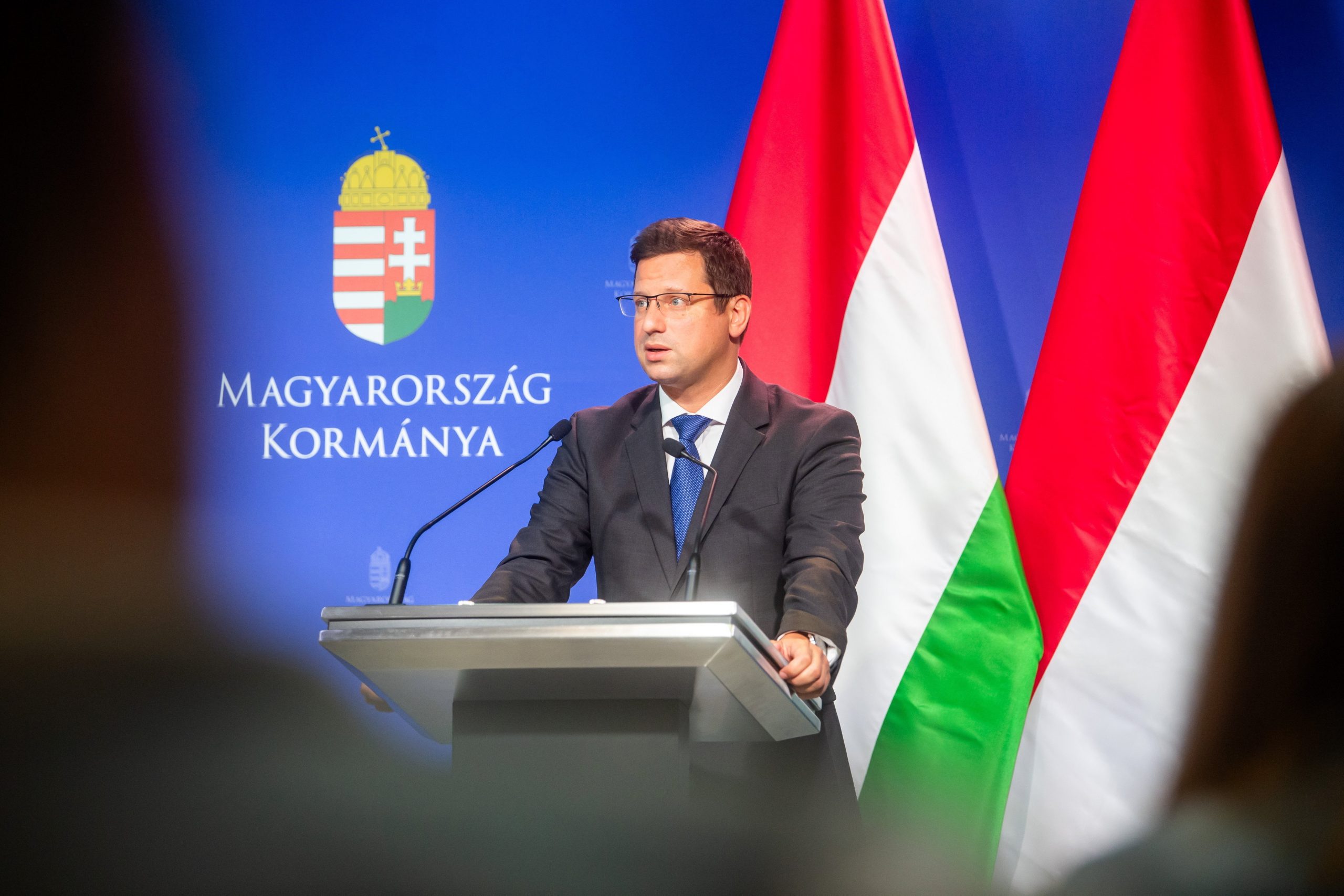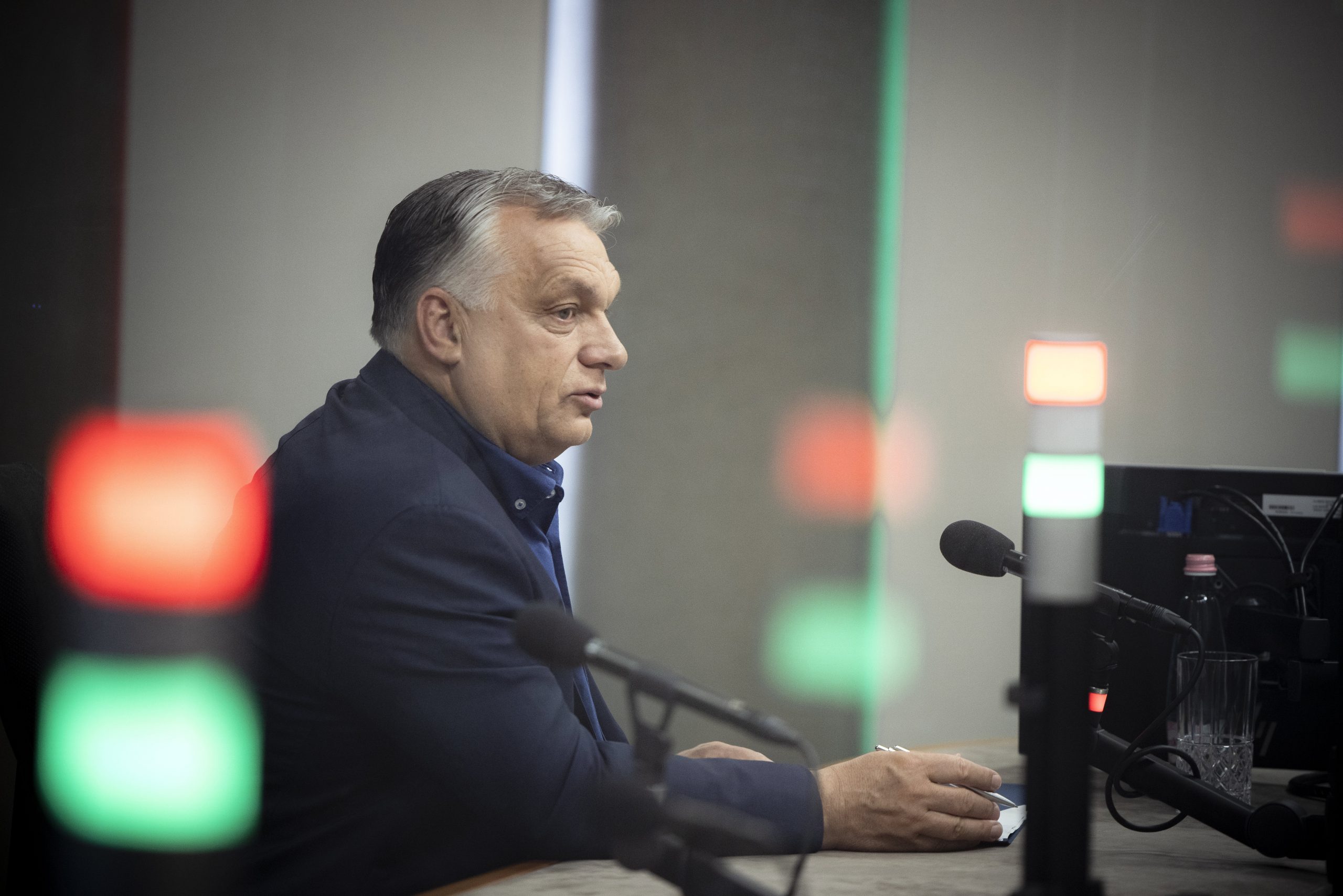
Hungary currently imports fuel through Ukrainian pipelines at five times the price.Continue reading

Viktor Orbán was a guest on Kossuth Radio’s morning show on Friday, where he touched on the most important political and economic issues in his usual weekly interview. The Hungarian Prime Minister spoke about inflation, rising petrol prices, the ban on Ukrainian grain imports, and demographic issues, among other topics.
Viktor Orbán said he believes that the current measures are sufficient to bring inflation below 10 percent by the end of the year. In his assessment, multinational trading chains are taking advantage of the price increases caused by the war and sanctions, and are trying to raise prices more than they could. This has a major role to play in inflation, so action must be taken against price speculating multinationals, as the government has done, he shared.
He pointed out that countries were now trying different means, that price caps had “fallen out of fashion” at one point, and Hungary had also switched to mandatory promotions in supermarkets.
However, the prime minister added that he could see some countries bringing back price caps on petrol and basic foodstuffs. The toolbox is wide, and if necessary the government will take further action, they will protect people and families with all possible government tools, he emphasized. The prime minister explained that war and the sanctions also play a role in inflation, so they must be countered.
Despite the fact that the European Union is basically a peace project, the pro-war side is now in an overwhelming majority, the prime minister said, adding that the deteriorating economic situation will be the decisive factor that will force EU governments to join the peace camp.
Since the outbreak of the war, “we have given Ukraine some 180 billion forints (EUR 470 million) of European money and in return for this money we have not taken a single step closer to peace, but rather further away from it,”
he argued. According to Orbán, the decisive tools are in the hands of the Americans regarding the war.
On rising fuel prices, the prime minister pointed out that for Hungary, it means a 48 billion forint (EUR 125 million) overplus that the Ukrainians have raised the transit fee for the oil pipeline by three and a half times. He explained that the oil needed for petrol comes from Russia via Ukraine, and Hungary has to pay for the use of the Friendship pipeline, but the Ukrainians have brutally increased this fee “overnight.”
The petrol trade in Hungary is managed by the private sector, whose operators immediately incorporate this increased fee into prices, which in turn pushes up the price of petrol and increases inflation.
Orbán noted that he has conflicting feelings about the price increase, because while he is very angry, he also sees that the Ukrainians are fighting for their lives, they have no money, no weapons, and are outnumbered. Yet they are not inclined towards peace, but towards the continuation of the war, and they are trying to collect money from any source.
I will do my utmost to dissuade the Ukrainians from continuing this policy and raising the price for using the pipeline to the sky, thus ‘screwing’ us and putting Hungarian families and the Hungarian economy in a difficult situation,”
the Prime Minister emphasized.
The prime minister announced that if Brussels does not act, Hungary – in cooperation with Romania, Poland, and Slovakia – will extend the ban on Ukrainian grain imports, expiring at midnight on Friday, on a national basis. He added that this is likely to be a serious fight, given that the EU does not want to extend the ban for the time being.
He highlighted that such battles have to be fought every day because Brussels is not willing to take the side of the Member States and the European people, but prefers to represent American interests in the grain issue.
In his assessment, Ukrainian grain is not in fact Ukrainian, but “a commercial product from a territory that has probably long been in US hands,” which opens up a new dimension to the debate on Ukraine, that is, who wins and who loses in this war.
“What is certain is that America wins and Europe loses,” he stressed.
Orbán said that his personal goal was that those who have children in Hungary should live better financially than those who do not, and that young people should not be deterred from having children because they are experiencing financial and economic difficulties.
@PM_ViktorOrban: I’ve learned that convincing the current liberal elites is unlikely.
We simply need to sideline them and ensure that #FamilyFriendly, #conservative forces come to power in as many countries as possible.
Next year’s European elections provide an opportunity… pic.twitter.com/9sfZoWInya
— Balázs Orbán (@BalazsOrban_HU) September 14, 2023
He pointed out that there is no common demographic policy in Europe today. That is why forums such as the Demographic Summit in Budapest are being held to persuade decision-makers to “put this on the agenda.” Orbán also recalled that the family policy introduced in 2010, had resulted in 160,000 more children being born.
The prime minister highlighted that the stakes of next year’s European Parliament elections were that the EU should have a leadership that wants peace, does not isolate itself, but wants to cooperate with other regions of the world, is able to stop migration, gives up gender propaganda, and instead supports families and childbearing, and leaves behind the double standards against Poland and Hungary.
Via MTI, Featured photo via MTI/Miniszterelnöki Sajtóiroda/Fischer Zoltán